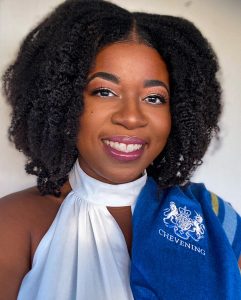November 8th, 2020 marks the celebration of the educational initiative focused on science, technology, engineering, and mathematics (STEM). As the world continues to evolve, almost every job now requires some skill in STEM and the education system strives to keep up with training individuals who can think critically, solve complex problems, and drive advancements in science and technology. Although the number of women in STEM careers is growing, men continue to dominate these professions. In 2019, women accounted for approximately 27% of workers in STEM qualified industries. Why are there so few women in STEM careers? Key factors perpetuating the gender gaps in STEM include gender stereotypes, fewer female role models, male-dominated cultures, and the confidence gap.
Concerning STEM education, a serious challenge faced is the lack of diversity in career options for women. We need to encourage girls and minorities to engage in STEM studies and pursue non-traditional professions. We need to support our students and prepare them for the challenges and opportunities ahead and to do so, we rely on and celebrate our women who are working tirelessly to improve the future of STEM for our rising generation.
Shanna Challenger plays a critical role in changing the future of STEM in her home country, Antigua & Barbuda. Her passion for the sciences led her to study Biology and Chemistry at the University of the West Indies, with plans to transfer to medicine however in her 1st year of school, she took two Biology courses that made her quickly realize that she was more interested in learning about flora, fauna, and fieldwork. In her 2nd year, she decided to switch majors to Ecology. Unfortunately, she lost her scholarship and had to spend an extra semester as a result, but she was not discouraged. When asked “why ecology?” Shanna responds that she is happiest when she is out in nature. Many people tried to dissuade her from completing her degree in ecology lest she ‘ended up as a teacher’ or ‘working for the government’ – a common misbelief in the Caribbean community.
Her first job offer was a coordinator position for the Redonda Restoration Program. This was a once in a lifetime opportunity to work on an uninhabited island with critically endangered species found nowhere else in the world, plagued by rats and goats. At that time, the island resembled a moonscape and was crumbling into the sea. A mere 17 species of plants remained on the island and her primary focus was to eradicate the rats and relocate the goats, thus restoring the ecosystem and allowing the native wildlife to flourish. Her daily routine included diving, camping, outdoor survival skills, and data analysis. This was definitely not the average 9 – 5 job!
Shanna admits that at first, she did not even think she would have gotten the job but after several weeks, she realized that it was not about the degree – it was about having someone who was motivated about the project, open and friendly, who could build a sense of ownership in Antiguans and Barbudans for their sister isle which they had never seen before. Now in 2020, 3 years after the goats and rats have been removed, populations of at least two of the three lizard species have increased by more than 3-fold, and species of land birds and invertebrates, not seen in decades, have returned. Terrestrial invertebrates in general – and beetles in particular – have increased by more than 5-fold since 2017. For the first time in centuries, a new generation of seabirds (including frigatebirds, boobies, and tropicbirds) is growing up in a predator-free environment. Shanna adds, even the plant species now number over 88 species on Redonda and was quite overjoyed that in such a short time, Redonda was able to rebound with just a little bit of help – a successful restoration effort.
A scientist at heart, Shanna decided to pursue her Master of Science in Conservation Biology, for which she earned a distinction. A proud recipient of the prestigious Chevening scholarship, Shanna focused on choosing courses based on research, networking, and improving her understanding of ecological and economic balance. Her dissertation focused on the population recovery of two of Redonda’s critically endangered lizards in response to vegetation. Now she is employed as an Offshore Islands Conservation Program (OICP) Coordinator for the Environmental Awareness Group (EAG), focused on Antigua’s offshore islands within a marine reserve. In contrast to Redonda’s isolation, Shanna is faced with new challenges such as developing strategies for climate change mitigation, apathy towards the environment, and unsustainable coastal developments. However, her surname is quite fitting, and she is ready to face the challenge and take steps necessary to achieve flourishing offshore island ecosystems where wildlife thrives, people are meaningfully engaged, and sustainable use is valued and practiced for the benefit of all.
Her favorite part about working in STEM is fostering a human-nature connection and being able to help restore the environment to its original form. However, the most frustrating part about having a career in ecology is that nature takes its time to heal, and it becomes harder to show people the immediate effects of their disruptive actions on the environment.
“We do not think about the long-term impacts of our short-term actions.”
Shanna has faced her fair share of discrimination in her career due to her gender and race, mainly in the form of microaggression in international settings. This opened her eyes to the fact that she belonged to a minority group. At conferences, she noticed that not a lot of people looked like her. When birding with an older Caucasian male team member, people often misperceived the power dynamic assumed to be a “fling” instead of a colleague. While in countries where she is part of the minority, there were multiple instances where she noticed people clutching their purses and crossing the street when she tried to approach them with a research survey. “Being a woman in this field is difficult, however having a great personality and strong mindset helps me to cope”, she disclosed.
Upon reflection, Shanna wished that she had a role model and mentor to help with mapping out her career journey and exploring options in STEM. Growing up she felt like she was limited to the more common careers in science and felt like she wasted precious time pursuing medicine. She also wished that she had the opportunity to work with EAG as a youth volunteer to gain more experience in the field to prepare her for a career in conservation.
Her advice for young women is simple yet profound. “There is SO MUCH you can do in STEM! I want you to think very carefully about what you want to do. Make a detailed career plan and set milestones. Do everything within your power to get to where you want to be. Be patient and do not forget to reward yourself in between. Do not be disheartened when you encounter hurdles – keep focused on your goals. Most importantly, find a mentor – there is always someone more experienced in your field who is willing to assist and guide you.”
So, what’s next for Shanna?
Her priority is to implement change in her current position to improve the volunteer program by recruiting more high school and university students. She is already in the process of organizing a virtual floating classroom for elementary students which brings science alive through a virtual field trip exploring Antiguan ecosystems, a teacher’s resource guide, and a student activity booklet to enrich their learning experience. Shanna is also quite active on social media such as Instagram and Twitter. @SpecieswithShanna is designed to stimulate environmental activism and educate the general public about endemic species, conservation, and environmental legislature. Her other plans include hosting a Green-Jobs fair in Antigua to showcase the variety of careers in STEM. Of course, she remains committed to research and publications with hopes of implementing a marine program to recover coral reefs that remain damaged from a major hurricane since 1995, within the island’s largest marine reserve.
By highlighting the achievements of women like Shanna who are leading innovation and calls for action that remove all barriers that hold them back, we join the commitment to encourage young women to pursue nontraditional careers in STEM. Join us in celebrating National STEM Day and the women all over the world who are setting an example for future generations.
About the Author
 Shanna Challenger, BSc. (Hons), MSc. (DIST) is the Offshore Islands Conservation Program (OICP) Coordinator at the Environmental Awareness Group in Antigua and Barbuda. She holds a BSc. in Ecology from the University of the West Indies, and an MSc. in Conservation Biology (with Distinction) from the University of Kent with the Durrell Institute of Conservation Ecology (DICE). Her research and work in the restoration of Redonda led to her recognition in 2017 as one of 25 Caribbean Achievers Under 25. Shanna is passionate about conservation and environmental education and hopes to inspire as many young girls and women as possible to pursue careers in STEM.
Shanna Challenger, BSc. (Hons), MSc. (DIST) is the Offshore Islands Conservation Program (OICP) Coordinator at the Environmental Awareness Group in Antigua and Barbuda. She holds a BSc. in Ecology from the University of the West Indies, and an MSc. in Conservation Biology (with Distinction) from the University of Kent with the Durrell Institute of Conservation Ecology (DICE). Her research and work in the restoration of Redonda led to her recognition in 2017 as one of 25 Caribbean Achievers Under 25. Shanna is passionate about conservation and environmental education and hopes to inspire as many young girls and women as possible to pursue careers in STEM.









